A Break-In At A Building Is Just The Beginning
“Watergate.”
It’s become synonymous with former President Richard Nixon. His downfall and subsequent resignation from the presidency. And subterfuge that ultimately submerged the U.S. in debates about truth, justice, and the American way.
Here’s the story behind one of the most compelling political stories of the 1970s.
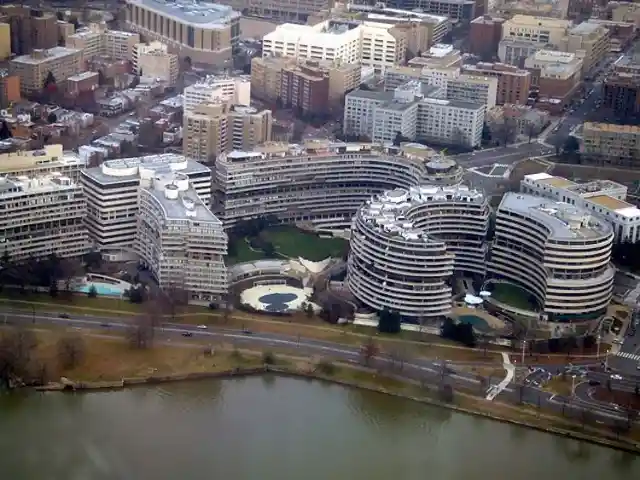
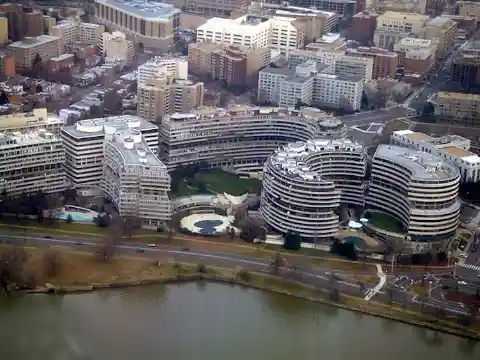
In June of 1972, burglars were arrested inside the Democratic National Committee (DNC) office located in the Watergate building in Washington, D.C. Questions immediately arose about what initially appeared to be a random break-in: Why would burglars zero in on the Watergate, a nondescript office building? What were they looking for in the DNC office? And who was the mastermind behind this perplexing break-in?
Not long after the break-in, investigations were launched, and it slowly became apparent that the DNC was the target. Could it be that the burglars were looking to influence the direction of the impending presidential elections?
Burglars Looking To Steal Information
The burglars, it turned out, had been hired by Nixon’s reelection committee. A month prior, they had broken into the DNC offices to wiretap phones and steal top-secret documents, an act that falls under the scope of illegal espionage. But the wiretaps were improperly placed, so the burglars returned to the scene of the crime to tap the phones once again. This time, however, they were caught in the act.
As the story broke and investigations into the event intensified, journalists began uncovering information that indicated the break-in could be tied to Nixon’s White House. One of the burglars was associated with the CIA; another had in his possession the phone number of a former White House employee known to be part of the “Plumbers,” a White House special investigation unit.
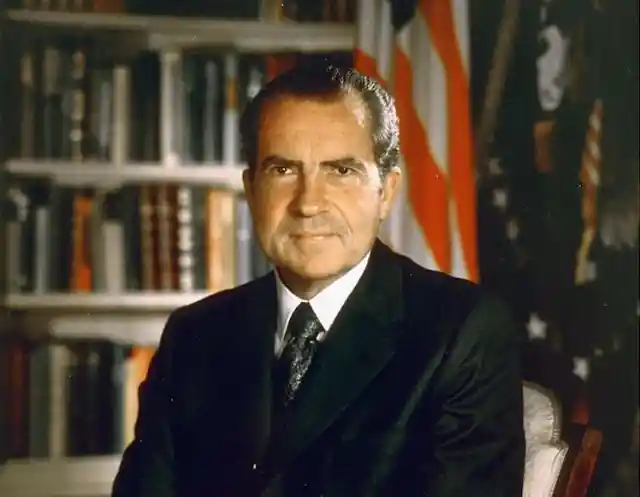
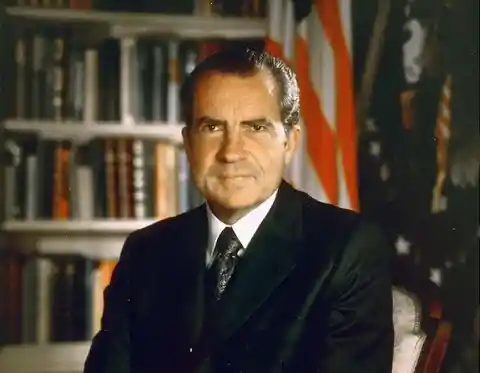
Deny, Deny, Deny
Amid questions and accusations, Nixon continued to deny having any connection to the burglars or any awareness of what had transpired in the Watergate. Without any hard evidence to implicate Nixon, the presidential election continued as planned, and Nixon won in a landslide.
But a coverup, concocted to divert attention from the president-elect, was beginning to unravel. Individuals who had been working on Nixon’s campaign began promoting lies, documents were destroyed, and even the FBI was implicated. In response, the U.S. Senate opened an official investigation, during which it was learned that the FBI was indeed involved with the cover-up conspiracy. Many in government and the media wondered whether top White House aides were connected with the break-in and if they had been acting at the direction of the president.
Ultimately, one of the burglars threatened to reveal what – or whom – was behind the break-in, but received hush money in exchange for his silence. To throw investigators off the track, Nixon then initiated his own investigation, which he hoped would divert attention from a closer examination of the events.
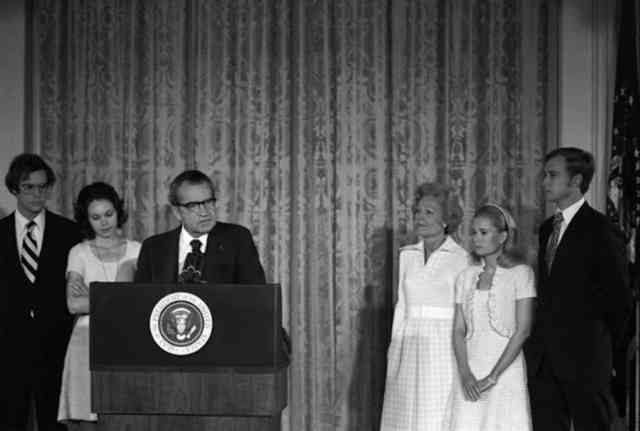
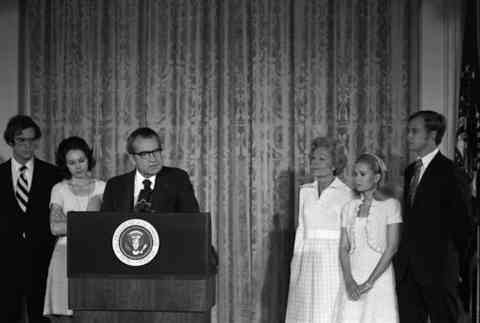
Wiretaps And Tapes
The Supreme Court eventually served Nixon with a subpoena that required him to turn over any documents relevant to the case as well as 64 tapes of his own conversations. The tapes revealed what many had believed to be the truth, and what many had hoped would prove false: that Nixon had known about (and possibly ordered) the break-in, and had tried to cover up not only the illegal act but also his involvement.
Based on the evidence, Congress voted to begin impeachment proceedings, but Nixon decided to avoid public scrutiny and humiliation and chose to leave the office on his own terms. On August 8, 1974, Nixon resigned from the office of the president of the United States, then left the White House and boarded a helicopter after pausing to flash his trademark “V for victory” sign before the doors closed behind him.
Vice-President Gerald Ford assumed the transfer of presidential power following Nixon’s resignation. In September 1974, President Ford pardoned Nixon for his alleged crimes, reasoning that Nixon had endured enough disgrace and believing that a pardon would allow the country to move on and heal from this dark episode of political espionage.